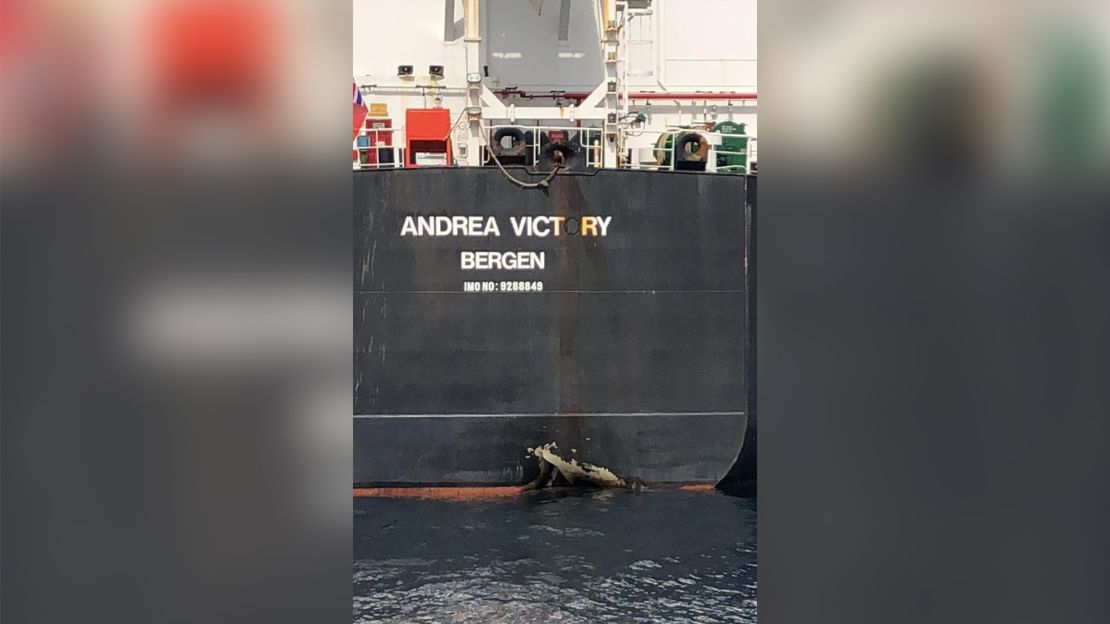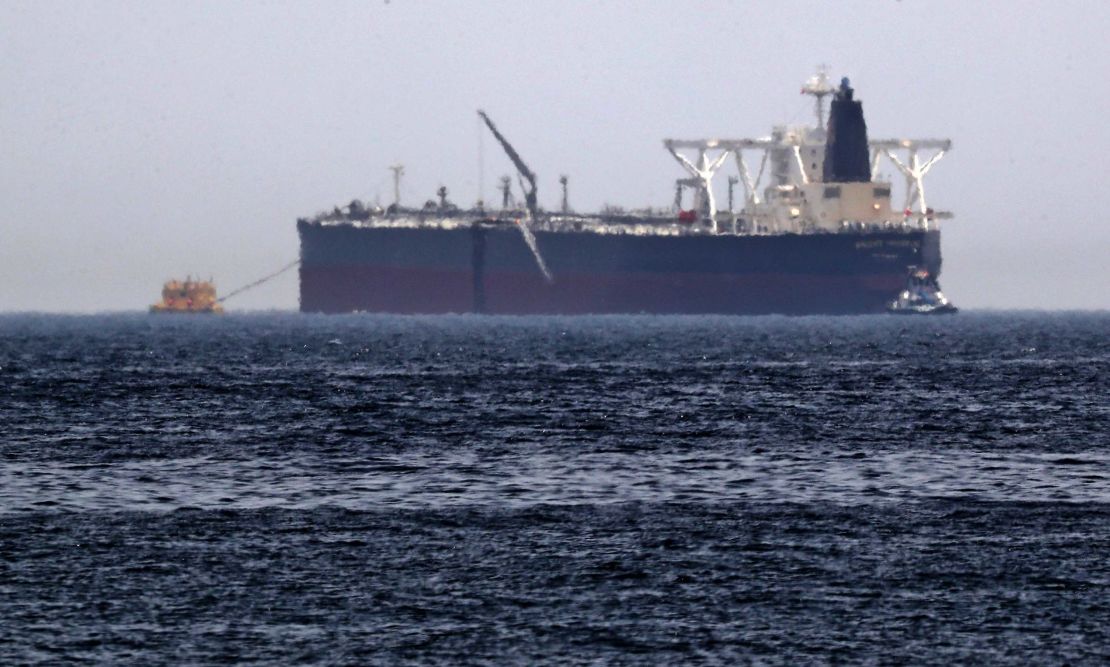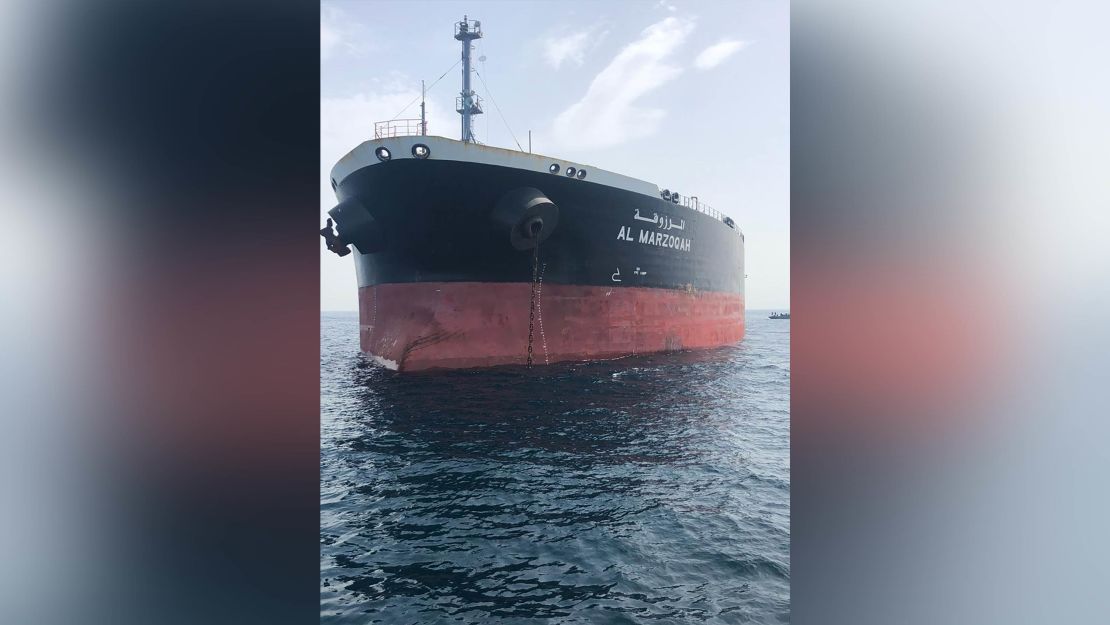Four ships were targeted on Sunday near the strategic Emirati port of Fujairah, in what the UAE described as a “sabotage attack.” One was flying a UAE flag, and another the Norwegian flag. The other two were tankers owned by Saudi Arabia, which described the incident as a threat to the security of global oil supplies.
There were no injuries or deaths, according to the UAE Ministry of Foreign Affairs and International Cooperation. It did not elaborate on the nature of the alleged sabotage, or offer any indication as to who might be responsible.
Tensions have risen in the oil-rich region in recent weeks amid the deployment of a growing number of United States military assets to the Middle East, due to deteriorating relations with Iran.
Iran’s Foreign Ministry spokesperson Seyyed Abbas Mousavi said Monday that the incidents were “alarming and regrettable,” and requested further information on the alleged sabotage. He also warned against “plots by ill-wishers to disrupt regional security” and called for “vigilance of regional states in the face of any adventurism by foreign elements.”

Several US officials are cautioning there is no final conclusion on how the ships were damaged. One US official pointed out the lack of detail from the UAE and Saudi Arabia about how the ships were damaged.
In a tweet, Emirati Minister of State for Foreign Affairs Anwar Gargash said investigations in the incident were ongoing but that the government had its “own readings and conclusions.”
“The international community (needs to) assume its responsibilities to prevent any parties trying to undermine the security and safety of maritime traffic,” the ministry said.
What we know
The incident took place near UAE territorial waters in the Gulf of Oman, east of the emirate of Fujairah, the country’s Ministry of Foreign Affairs and International Cooperation said. The ministry added that authorities were working with local and international bodies to investigate the incident, which it described as a “dangerous development.”
Images that CNN captured of the Norwegian tanker, Andrea Victory, show damage sustained to the hull of the vessel. In a statement Monday, Thome Ship Management, which manages the ship, confirmed it suffered hull damage after being struck by an unknown object at the waterline and said that it was not in any danger of sinking.
One of the Saudi vessels was on its way to be loaded with Saudi crude oil from the port of Ras Tanura, to be delivered to customers in the US, Saudi Arabia’s state-run Saudi Press Agency (SPA) reported Monday. While the agency didn’t mention casualties or oil spills, it did say there had been “significant damage to the structures of the two vessels.”
On Monday, the UAE formally asked the US for technical assistance in assessing the vessels’ damage, according to a US official. The US experts will look at the damage patterns, try to recover any material from the site, and determine if some kind of missile or weapon hit the ships.

Rumblings about Iran
Last week, the US Maritime Administration issued an advisory that “Iran or its proxies” could be targeting commercial vessels and oil production infrastructure in the region. The warning followed Iran’s announcement that it was partially withdrawing from a landmark nuclear deal, the Joint Comprehensive Plan of Action, which the US itself unilaterally exited one year ago.
US Air Force F-15s and F-35s, along with B-52 bombers, are now flying visible air patrols over the Persian Gulf, according to a US official, who said that the flights were designed to demonstrate to both Iran and US allies that US forces are in a deterrence mode.
Several officials say that the US is continuing to conduct intelligence, surveillance and reconnaissance (ISR) flights in the Middle East.
Also on Monday, US Secretary of State Mike Pompeo canceled a planned visit to Moscow on Monday and flew to Brussels for talks on Iran with his counterparts from the UK, Germany, France.
Asked later that day if the US was going to war with Iran and if the US was seeking regime change there, Trump said, “We’ll see what happens with Iran.”
The Strait of Hormuz: A strategic passage
Iran borders the Persian Gulf (also known as the Arabian Gulf) and the Strait of Hormuz, a strategically important waterway.
The US Energy Information Administration calls the Strait of Hormuz “the world’s most important oil transit chokepoint,” with an estimated 20% of oil traded worldwide moving through the channel, which is about 30 miles wide at its narrowest point.
Saudi Arabian Energy Minister Khalid al-Falih described the incident as a deliberate attempt to “undermine the freedom of maritime navigation, and the security of oil supplies to consumers all over the world.”
A senior source at Saudi Arabia’s ministry of energy told CNN that the attacks were particularly alarming because the tankers were targeted outside the Strait of Hormuz.
Oil prices rose by nearly 2% at one point on Monday in the wake of the Saudi claims of sabotage.
UAE denied earlier reports
The accusations of sabotage come less than 24 hours after the UAE government denied reports alleging that seven oil tankers were involved in an explosion in the port of Fujairah on Sunday morning.
The reports were carried first by Lebanon’s pro-Hezbollah Al-Mayadeen satellite channel and later picked up by Iran’s state-owned Press TV and other outlets.
“The operations at the port are going as normal,” a statement from the Emirates News Agency said Sunday. “Media outlets must be responsible and rely on official sources.”

In a statement Sunday, the Gulf Cooperation Council condemned those reported “sabotage operations,” with council General Secretary Abdul Latif bin Rashid al-Zayani calling the incident a “dangerous escalation (that) speaks of the evil intentions” of whoever carried out the attack.
CNN’s Mohammed Elshamy and Karen Smith in Atlanta, Nada AlTaher in Abu Dhabi and Barbara Starr in Washington, DC contributed to this article.

